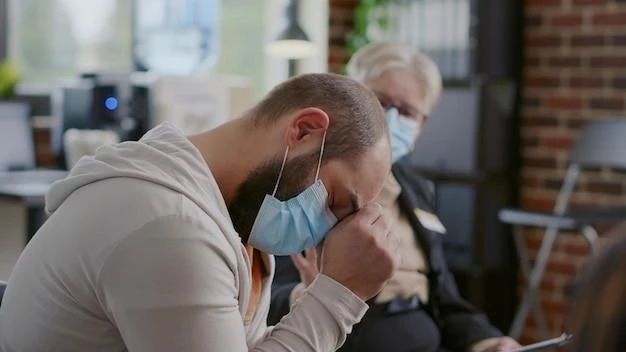Hoepffner–Dreyer–Reimers Syndrome
Overview of Hoepffner–Dreyer–Reimers Syndrome
Hoepffner–Dreyer–Reimers Syndrome is a rare inherited neurological disorder characterized by muscle weakness, joint stiffness, coordination problems, and speech difficulties․ It is crucial to understand the symptoms, causes, diagnosis, treatment, and prognosis of this condition for proper management․ Genetic research is ongoing to further enhance our knowledge of this syndrome․
Symptoms and Diagnosis
Recognizing the symptoms of Hoepffner–Dreyer–Reimers Syndrome such as muscle weakness, joint stiffness, coordination problems, and speech difficulties is crucial․ Seeking a prompt diagnosis through comprehensive medical evaluations and genetic testing is essential for appropriate treatment and management strategies․ If you or a loved one experience any of these symptoms, consult a healthcare provider for proper assessment and guidance․
Muscle Weakness
Muscle weakness is a common symptom of Hoepffner–Dreyer–Reimers Syndrome, impacting daily activities․ It is essential to address this symptom through medical interventions and therapies tailored to improve muscle strength and function․ Consult a healthcare provider to discuss personalized treatment plans and management approaches for managing muscle weakness effectively․
Joint Stiffness
Joint stiffness is a significant symptom of Hoepffner–Dreyer–Reimers Syndrome, impacting mobility and quality of life․ It is vital to address this symptom through medical interventions and therapeutic approaches designed to improve joint flexibility and reduce discomfort․ Consulting with healthcare professionals can help in developing personalized strategies for managing joint stiffness effectively․
Coordination Problems
Coordination problems are a key feature of Hoepffner–Dreyer–Reimers Syndrome, affecting daily tasks and movements․ It is crucial to address these challenges through a combination of therapies and interventions aimed at enhancing coordination skills and motor functions․ Seeking guidance from healthcare providers can lead to the development of personalized strategies for managing coordination problems effectively․ Stay proactive in your treatment journey to improve coordination abilities and overall well-being․
Speech Difficulties
Speech difficulties are common in individuals with Hoepffner–Dreyer–Reimers Syndrome, impacting communication abilities․ It is essential to address these challenges through speech therapy and assistive technologies tailored to improve speech clarity and language skills․ Collaborating with speech therapists and healthcare professionals can help in developing personalized interventions for managing speech difficulties effectively․ Stay proactive in seeking support to enhance communication and quality of life․
Diagnostic Procedures
Accurate diagnosis of Hoepffner–Dreyer–Reimers Syndrome involves a comprehensive evaluation, including genetic testing, imaging studies, and neurological assessments․ Seeking prompt medical attention and undergoing the necessary diagnostic procedures are crucial for confirming the condition and developing an appropriate treatment plan․ Collaborate closely with healthcare providers to facilitate a timely and accurate diagnosis, enabling personalized care and management strategies to address the specific needs associated with this syndrome․
Causes and Genetic Inheritance
Hoepffner–Dreyer–Reimers Syndrome is a rare neurological disorder with an inherited genetic basis․ Understanding the genetic mechanisms and inheritance patterns associated with this syndrome is crucial․ Genetic research plays a significant role in elucidating the causative factors and variability of symptoms․ It is essential to consult with genetics specialists for comprehensive genetic testing and counseling to grasp the hereditary nature of this syndrome and its implications for individuals and families․
Rare Nature of the Syndrome
Hoepffner–Dreyer–Reimers Syndrome is classified as a rare genetic disorder, with limited prevalence in the general population․ Due to its rarity, the syndrome may present challenges in diagnosis and treatment․ It is crucial for healthcare providers, researchers, and families to raise awareness about this condition and collaborate to advance understanding and management strategies․ By recognizing the rare nature of the syndrome, efforts can be directed towards improving diagnostic capabilities, enhancing treatment options, and supporting individuals and affected families effectively․
Treatment and Management

Effective treatment and management strategies are essential for individuals with Hoepffner–Dreyer–Reimers Syndrome to enhance quality of life․ Medical interventions focusing on symptom relief, therapies targeting motor function improvement, and speech interventions can play a significant role․ Collaborate closely with healthcare professionals to develop personalized treatment plans that address individual needs․ By actively managing the symptoms and challenges associated with this syndrome, individuals can lead fulfilling lives and optimize their overall well-being․
Medical Interventions
Medical interventions for Hoepffner–Dreyer–Reimers Syndrome focus on addressing specific symptoms such as muscle weakness, joint stiffness, and neurological manifestations․ Healthcare providers may recommend medications, surgical procedures, or other interventions to manage symptoms effectively․ It is essential to follow medical advice and attend regular appointments to monitor progress and adjust treatment plans accordingly․ By actively engaging in medical interventions, individuals can optimize their health outcomes and quality of life while living with this syndrome․
Therapies
Therapeutic interventions play a crucial role in managing Hoepffner–Dreyer–Reimers Syndrome symptoms and improving overall function․ Occupational therapy, physical therapy, and speech therapy can help individuals enhance mobility, muscle strength, and communication skills․ Engaging in regular therapy sessions and exercises tailored to specific needs is vital for long-term management․ Collaborate with therapists to design a personalized therapy plan that addresses individual challenges and goals․ By participating in therapies consistently, individuals can work towards improving independence and quality of life․
Prognosis and Research
Understanding the prognosis of Hoepffner–Dreyer–Reimers Syndrome is essential for individuals and families․ Ongoing research aims to enhance knowledge of the syndrome, prognosis, and potential treatment developments․ By staying informed about the latest research findings and participating in clinical trials, individuals can contribute to advancing treatment options and improving outcomes․ Consult with healthcare professionals to gain insights into the prognosis of the syndrome and explore opportunities to engage in research initiatives for the benefit of the broader community․
Conclusion and Recommendations for Patients
In conclusion, individuals with Hoepffner–Dreyer–Reimers Syndrome can benefit from a multidisciplinary approach to treatment and management․ It is essential to prioritize regular medical evaluations, engage in therapies, and stay informed about the latest research․ By advocating for yourself, seeking support from healthcare providers and support groups, and actively participating in your care, you can optimize your well-being while living with this rare neurological disorder․ Remember, you are not alone, and proactive management can lead to improved quality of life and overall health․
